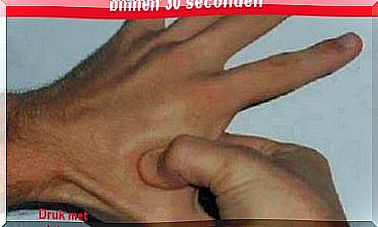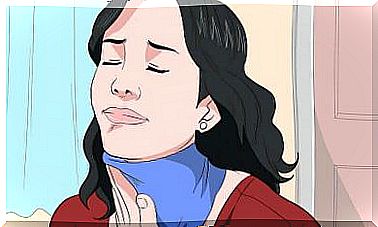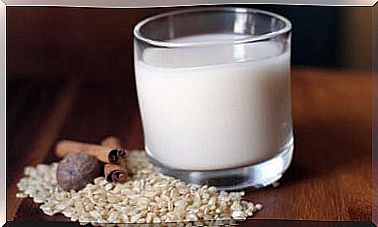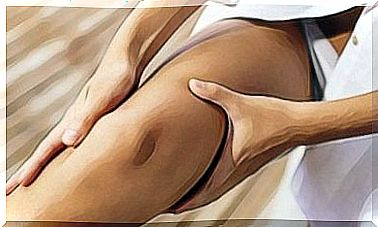The Action And Negative Effects Of Atropine
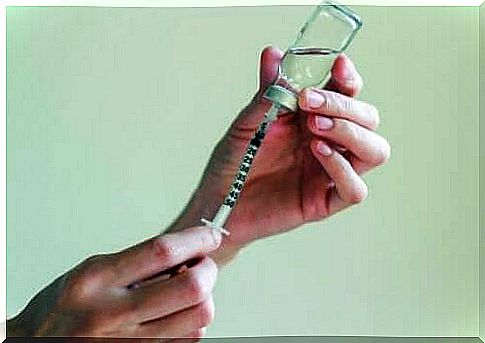
Atropine is a type of medication. Doctors use it for many different things. This drug possesses mydriatic (dilation of the pupil), antispasmodic, antidiarrhoeal, anti-inflammatory and anesthetic properties. Discover the effects of atropine here.
This active ingredient comes from the belladonna plant and other plants of the nightshade family . Since ancient times, the Hindus have used belladonna preparations. Later, during the Roman Empire and the Middle Ages, these substances were used to poison people.
In this article, we explain the following aspects of atropine in detail:
- Operation
- Pharmacokinetics
- Pharmacological Effects
- Possible negative reactions
Before we start, however, you need to know what acetylcholine receptors are. That way you will better understand how atropine works.
Acetylcholine receptors

Atropine is an active ingredient that, as we mentioned, comes from plants of the nightshade family such as belladonna. It has been used since ancient times.
Acetylcholine receptors are a group of receptors that include two other types of receptors namely:
- the muscarinerge
- the nicotinic receptors
They are mainly located in the synaptic cleft. We also find them mainly at the back of the brain stem. However, some of these receptors are located at the presynaptic level.
All neurotransmitter systems have receptors at the presynaptic level. That’s because they control the amount of acetylcholine that’s produced.
Acetylcholine is a substance that is synthesized in the cytoplasm of motor nerve cells. It directly activates the acetylcholine receptors. However, there are very few presynaptic receptors that trigger the secretion of this substance.
How does atropine work and what are its effects?
Atropine is a substance that acts on the muscarinic acetylcholine receptors. We have already seen that acetylcholine directly activates these receptors.
This means that this substance hinders the parasympathetic nervous system. Essentially, we can explain this by the fact that the acetylcholine receptors are parasympathetic executors. When someone takes atropine, this has an effect on, among other things:
- the heart
- the eyes
- the digestive tract
Pharmacokinetics

In general, we can take this drug orally, intravenously and in many other ways as well. When administered orally, the digestive tract readily absorbs the atropine into the bloodstream.
This drug is well soluble. That means it is able to cross the blood-brain barrier and the placenta. Pregnant women in particular should therefore be very careful when they are treated with atropine.
It has a half-life of about two to three hours. In addition, the liver converts between 50 and 75% of the atropine in the metabolism. After that, the body excretes the metabolites and the unreacted part of the drug in the urine.
Pharmacological effects of atropine
Atropine thus blocks the activity of the muscarinic acetylcholine receptors. This basically means that it prevents the acetylcholine and those receptors from interacting.
It does this in a gradual manner in a series of structures. Examples of those structures are:
- the salivary, mucous membrane and sweat glands
- the vascular smooth muscle
- the heart
- the digestive and urinary tract
- the secretion cells of the stomach
- the autonomic ganglions
In all these parts of the body, the effects of atropine are therefore anti-cholinergic. As a result, it can elicit the following reactions:
- Tachycardia. This is why it is used to increase the heart rate during emergencies.
- At the level of digestion, it reduces peristalsis, spasms in the stomach and intestines, cramps and secretions.
- It makes peeing difficult. This is, for example, a problem that occurs in patients with benign enlargement of the prostate.
- mydriasis. Atropine then blocks the ciliary muscle (an eye muscle) which can have spasms. However, if you take the drug orally, it doesn’t interfere with the muscarinic receptors of the eyes.
Negative reactions to atropine
The negative effects of atropine are mainly dose related. Certain reactions often occur, especially in children. In addition, atropine can build up. In older people it can then cause certain effects after taking several doses.
The most common side effects in adults are:
- A dry mouth
- Red and warm skin because the person is not sweating
- Fever
- Constipation
